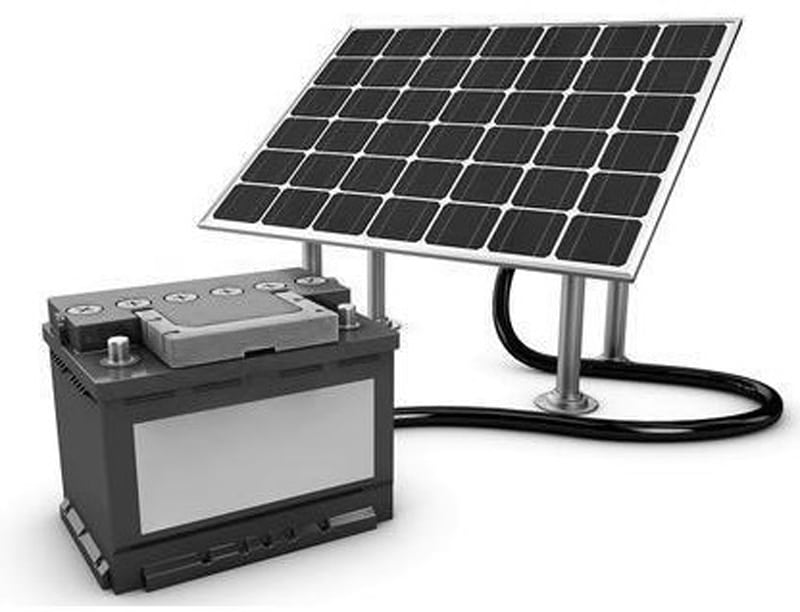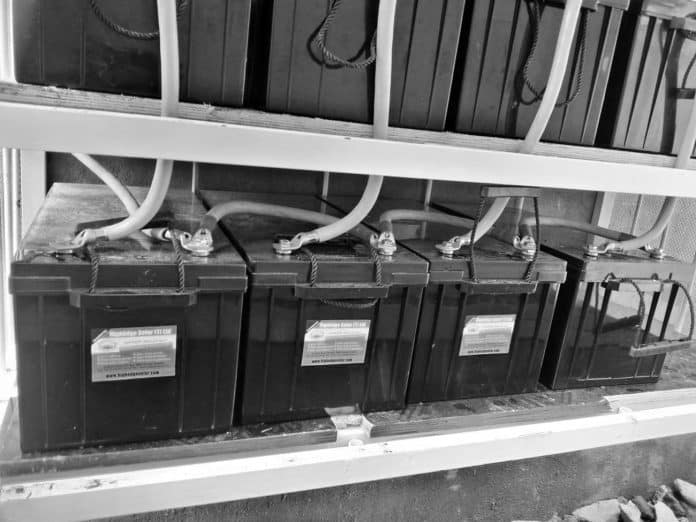Saving Money and the Environment: Comparing Solar Battery Prices in Tanzania for a Greener Future
Introduction
In an era where climate change is an ever-growing concern, finding sustainable solutions that benefit both the environment and our wallets has become a top priority. One such solution is harnessing the power of solar energy through the use of solar batteries. In Tanzania, where energy costs are high, and access to electricity is limited in many areas, the adoption of solar batteries has the potential to revolutionize the way people consume and save energy. However, with a plethora of solar battery options available in the market, it becomes crucial to compare prices and features to make an informed choice. This article aims to delve into the world of solar battery prices in Tanzania, exploring the various factors that influence their cost and the long-term benefits they offer. By the end, you’ll have a clearer understanding of how investing in solar batteries can help you save money and contribute to a greener and more sustainable future.
Benefits of Using Solar Batteries
Solar batteries offer numerous benefits for both individuals and the environment. One of the most significant advantages is storing excess solar energy generated during the day for use at night or when the sun is not shining. This means households and businesses can become less reliant on the grid and reduce their electricity bills significantly. With the rising costs of traditional energy sources, solar batteries provide an economical alternative, allowing users to save money in the long run; the sweet part, solar battery prices in Tanzania are fair and economical, making them accessible to almost everyone.
Additionally, solar batteries contribute to a greener future by reducing reliance on fossil fuels and decreasing carbon emissions. Traditional electricity generation methods often rely on the burning of fossil fuels, which release harmful greenhouse gases into the atmosphere. By using solar batteries, individuals can reduce their carbon footprint and help combat climate change. Furthermore, solar energy is a renewable source, meaning it will not deplete over time, unlike fossil fuels. This ensures a more sustainable and reliable energy supply for the future.

Investing in solar batteries also offers energy independence. In areas with limited access to electricity, solar batteries can provide a reliable and consistent source of power. This is particularly beneficial for rural communities in Tanzania, where the national power grid may not reach. With solar batteries, individuals can have access to electricity for lighting, powering appliances, and even running small businesses, improving their quality of life and economic opportunities.
Importance of Saving Money and the Environment in Tanzania
Tanzania faces numerous challenges when it comes to energy access and affordability. The country’s electricity grid is not fully developed, and many rural areas still lack access to reliable power. Even in urban areas, power outages are common, leading to disruptions in daily life and business operations. As a result, individuals and businesses often have to rely on expensive diesel generators or other forms of costly energy sources to meet their electricity needs.
High energy costs are a burden for both households and businesses in Tanzania. Most of the population spends a significant portion of their income on energy expenses, limiting their ability to save or invest in other areas. This affects economic development and hinders poverty reduction efforts.
Furthermore, Tanzania’s reliance on fossil fuels for electricity generation contributes to environmental degradation and climate change. Burning fossil fuels releases greenhouse gases, contributing to global warming and other environmental issues. Embracing renewable energy sources, such as solar energy, is crucial for Tanzania to mitigate climate change and ensure a sustainable future for generations to come.
Overview of the Solar Battery Market in Tanzania
The solar battery market in Tanzania has been growing steadily in recent years. As more individuals and businesses recognize the benefits of solar energy, the demand for solar batteries has increased. This has led to a wider range of options available in the market, offering consumers the opportunity to choose the best fit for their needs and budget.

Various local and international brands offer solar batteries in Tanzania, each with its own set of features and price points. When comparing different options, it is important to consider factors such as battery capacity, lifespan, efficiency, and warranty. Additionally, it is essential to evaluate the reputation and reliability of the brand, as well as the availability of after-sales support and maintenance services.
Solar battery prices in Tanzania can vary depending on the brand, capacity, and quality. While some brands may offer lower prices initially, it is important to consider the long-term cost-effectiveness of the battery. Factors such as battery lifespan and efficiency play a significant role in determining the overall value of the investment. Investing in a high-quality solar battery may incur a higher upfront cost but can result in greater savings over time.
Factors to Consider When Comparing Solar Battery Prices
When comparing solar battery prices in Tanzania, several factors should be taken into account to make an informed decision. Firstly, battery capacity is a crucial factor to consider. The capacity determines how much energy the battery can store and should align with your energy consumption needs. It is important to accurately assess your energy requirements to avoid overpaying for excessive capacity or facing energy shortages with insufficient capacity.
Another important consideration is the battery’s lifespan. Solar batteries have a limited lifespan, typically ranging from 5 to 15 years, depending on the brand and quality. Choosing a battery with a lifespan that meets your long-term energy needs is important. Additionally, it is essential to consider the warranty provided by the manufacturer, as a longer warranty period indicates confidence in the battery’s quality and durability.
Efficiency is another factor to consider when comparing solar battery prices. Battery efficiency refers to how effectively it can convert and store solar energy. Higher-efficiency batteries can store more energy from the same amount of sunlight, resulting in greater savings and a more reliable power supply. It is advisable to choose a battery with high efficiency to maximize the return on your investment.
Lastly, it is important to consider the overall value proposition of the solar battery. This includes factors such as the brand’s reputation, after-sales support, and maintenance services. Investing in a reliable brand ensures that you receive quality products and services, reducing the risk of unexpected failures or difficulties in obtaining support when needed.
Cost Analysis: Comparing Different Solar Battery Brands in Tanzania
To provide a practical understanding of solar battery prices in Tanzania, let’s compare three popular brands available in the market: Brand A, Brand B, and Brand C. Each brand offers batteries with different capacities and price points, allowing consumers to choose according to their specific energy needs and budget.
Brand A offers a 5 kWh solar battery with a price of $1000. This brand is known for its reliability and high-quality products. The battery has a warranty of 10 years and an efficiency rating of 95%. While the upfront cost may be higher compared to other brands, the long lifespan and high efficiency make it a cost-effective investment in the long run.
Brand B offers a 3 kWh solar battery at a price of $800. This brand is relatively new in the market but has gained popularity due to its competitive pricing. The battery comes with a warranty of 5 years and an efficiency rating of 90%. While the price may be more affordable, the lower capacity and shorter warranty period should be taken into consideration when evaluating its value.
Brand C offers a 7 kWh solar battery with a price of $1200. This brand is well-established and has a reputation for quality and after-sales support. The battery has a warranty of 15 years and an efficiency rating of 92%. While the upfront cost may be higher, the longer warranty period and decent efficiency make it an attractive option for those looking for a reliable and durable solar battery.
It is important to consider your energy consumption needs, budget, and long-term goals when comparing these brands. While the upfront cost may vary, assessing the overall value proposition and return on investment is crucial to make an informed decision.
Government Incentives and Regulations for Solar Battery Adoption in Tanzania
The Tanzanian government recognizes the importance of renewable energy adoption and has implemented various incentives and regulations to promote the use of solar batteries. These policies aim to make solar energy more accessible and affordable for individuals and businesses, further encouraging the transition towards a greener future.
One notable incentive is the exemption of Value Added Tax (VAT) on solar products, including solar batteries. This reduces the overall cost of solar batteries and makes them more affordable for consumers. Additionally, the government offers tax incentives and rebates for individuals and businesses investing in solar energy systems, further reducing the financial burden and encouraging adoption.
The government has also implemented net metering policies, allowing individuals and businesses to sell excess solar energy back to the grid. This provides an additional source of income for solar energy system owners, making the investment even more financially attractive.
Furthermore, the government has established regulatory frameworks to ensure the quality and safety of solar batteries and other solar energy components. This helps consumers make informed decisions and ensures that they receive reliable and durable products.
These government incentives and regulations provide a favorable environment for individuals and businesses in Tanzania to invest in solar batteries and embrace renewable energy. By taking advantage of these incentives, individuals can save money and contribute to a greener and more sustainable future.
Case Studies: Successful Implementation of Solar Batteries in Tanzania
To understand the real-life impact of solar batteries in Tanzania, let’s explore a few case studies of successful implementation.
In a rural village in Tanzania, a school installed a solar battery system to provide electricity for classrooms and administrative purposes. The solar battery system gave the school a consistent power supply throughout the day, even during power outages. This significantly improved the learning environment for the students and increased the efficiency of administrative tasks. The school also saved money on diesel fuel previously used to power generators during outages. The long-term savings and positive impact on the education of the students offset the upfront investment in the solar battery system.
In an urban setting, a small business owner invested in a solar battery system to power their shop and reduce energy costs. The solar battery system allowed the business owner to rely less on the grid and avoid interruptions in business operations due to power outages. The long-term savings on electricity bills allowed the business to allocate resources to other areas, such as product development and marketing. The investment in the solar battery system not only saved money but also positioned the business as environmentally conscious, attracting customers who appreciate sustainable practices.
These case studies highlight the tangible benefits of solar battery adoption in Tanzania. From improving education to enhancing business operations, solar batteries have the potential to transform the lives of individuals and the overall economy of the country.
Tips for Choosing the Right Solar Battery for Your Needs
Choosing the right solar batteries can be daunting as solar battery prices in Tanzania depend on quality and efficiency. When choosing a solar battery for your needs, consider the following tips to make an informed decision:
- Assess your energy consumption needs: Calculate your average energy consumption to determine the battery capacity required. Consider future growth or changes in energy needs to avoid under or over-investing in capacity.
- Research reputable brands: Look for well-established brands with a track record of reliability and customer satisfaction. Read reviews and seek recommendations from experts or other users to ensure you are investing in a quality product.
- Evaluate battery lifespan and warranty: Consider the expected lifespan of the battery and the warranty provided by the manufacturer. A longer lifespan and warranty period indicate confidence in the product’s quality and durability.
- Consider efficiency: Look for batteries with high-efficiency ratings to maximize energy savings and ensure a reliable power supply. Higher-efficiency batteries can store more energy from the same amount of sunlight, resulting in greater savings over time.
- Seek professional advice: Consult with solar energy experts or professionals to assess your specific needs and determine the most suitable battery for your requirements. They can provide valuable insights and help you navigate through the various options available in the market.
By following these tips, you can choose the right solar battery that aligns with your energy needs, budget, and long-term goals.
Conclusion: Making an Informed Decision for a Greener Future
Solar batteries offer a viable and sustainable solution for individuals and businesses in Tanzania to save money and contribute to a greener future. By harnessing the power of solar energy, individuals can reduce their reliance on traditional energy sources, lower their electricity bills, and mitigate climate change.
When comparing solar battery prices in Tanzania, it is important to consider factors such as battery capacity, lifespan, efficiency, and overall value proposition. Evaluating government incentives and regulations can also provide additional financial benefits and support for solar battery adoption.
Through successful case studies and practical tips, it is evident that solar batteries have the potential to transform lives, improve education, and enhance business operations in Tanzania. By making an informed decision and investing in the right solar battery, individuals can pave the way for a greener and more sustainable future.
With the increasing availability of solar battery options in the Tanzanian market, now is the perfect time to explore the possibilities and embrace the power of solar energy. Together, we can save money, protect the environment, and create a brighter future for generations to come.
For more articles related to Technology in Tanzania, click here!

































